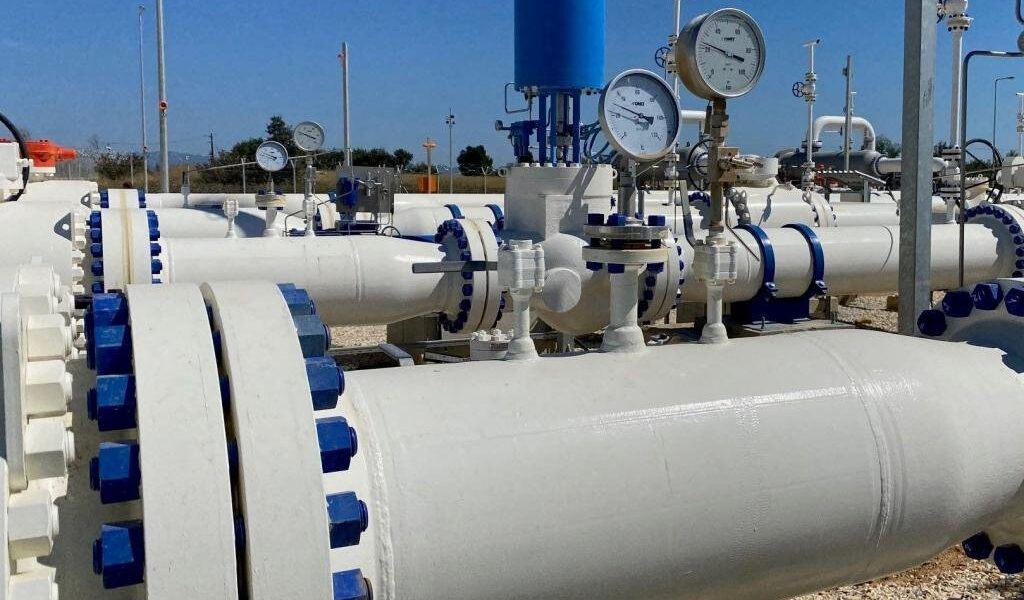According to sources of “Natural Gas Hellenic Energy Company”, which is the largest supplier in the sector, the price of natural gas for domestic consumption in October is set at 11 euro cents per kilowatt-hour.
This price includes taxes as well as the subsidy announced by DEPA, which amounts to 9 cents per kilowatt-hour. Based on this data, the price of natural gas is 20% lower than the price of heating oil, which is estimated to range between 1.42 and 1.45 euros per litre.
The distribution of heating oil will start on Friday, October 14, while its price has been fluctuating sharply lately. Oil price estimates include the 0.25 euro per litre subsidy announced by the government.
Subsidies for the beneficiaries of the heating allowance, which this year is granted with expanded criteria, are not included.
Oil market sources estimate that demand, at least in the first days of the winter heating season, will be subdued due to high prices and relatively favourable weather conditions, at least in southern Greece.
The demand for electricity this winter will be met after the measures taken in relation to energy sufficiency, the second vice president of RAE and president of the Crisis Management Group, Dimitris Fourlaris, said speaking at an event on “Energy Sufficiency in Electricity & Natural Gas – Consumer Supply Security” organised by the International University of Greece.
Even in the case of an interruption of the Russian natural gas supply, it is technically possible to meet the demand (both for natural gas and for electricity generation), he said, but in this scenario a question arises as to the possibility of fully meeting demand from Bulgaria. Following the interruption of the supply from Russia, the neighbouring country depends on natural gas exports via Greece.
According to the data presented by the vice president of RAE, peak demand in severely cold conditions this winter is expected to range between 8600 and 9200 megawatts (last winter it reached 8600 megawatts).
The measures that have been decided in order to ensure the country’s energy sufficiency are the increase of lignite production, the provision of an alternative fuel (diesel) for the five natural gas units in the country that have the ability to operate with oil, as well as the provision of natural gas storage.
Renewable energy sources have a lower participation during the evening hours, which is when peak demand occurs in the winter (due to lack of sunshine).
Fourlaris explained that there is no justification for fears that have been expressed about the possibility of a shortage if there are not sufficient quantities of lignite and water combined with increased exports, because under these conditions the price of electricity in the Greek market will be higher, so there will be no possibility of exports.
Meanwhile, a cap on wholesale gas prices is the best option for dealing with the huge price fluctuations in the natural gas market, Environment and Energy Minister Kostas Skrekas reiterated at a meeting of the informal Council of European Energy Ministers held on Wednesday in Prague, while stating that Europe must take immediate decisions to secure adequate supplies and reduce prices.
The agenda of the Council concerned the next steps to be taken by the member states to deal with high energy prices, as described in the letter of the President of the European Commission, Ursula von der Leyen, to the EU leaders and the proposed reforms in the electricity market.
Skrekas underlined that, although increased quantities of natural gas are coming to the EU, prices are skyrocketing and “this means that the markets are not working properly and availability is not a matter of price but of infrastructure adequacy.”
The Greek side called for a variable upper limit to the TTF index that would ensure natural gas is only marginally more expensive than in Asia and other regions, and not double the price paid on other continents.
The minister pointed out that the proposal of 15 member-states ensures that there will be no shortages in most member-states. “Price is just as important as availability, as some consumers and households cannot afford to buy gas at high prices. As they will not be able to cope with these conditions, their situation will be equivalent to cutting off the flow of natural gas.”
READ MORE: How Cisco will transform Syros into the technological capital of the Aegean.


